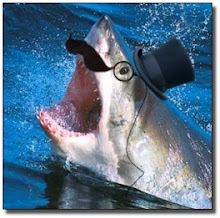Before we can talk about creationism, we need to first talk about evolution. Many Creationists do not really know what evolution is. In fact, many creationist arguments are based on a false version of evolution.
Evolution is the process by which organisms change in a way that can be passed on from one generation to the next. Eventually, evolution will produce new species. It is important to remember that evolution affects not only animals, but plants and bacterium as well. Evolution even works on viruses, even though they are not considered to be living things.
When most people talk about evolution, they are talking about Darwinian evolution. Charles Darwin is an important figure in the history of evolution, as he formulated the theory of natural selection. Before Darwin, many people has speculated that organisms might evolve, but Darwin was the first person to present a theory for how that might happen. This theory is called natural selection.
Natural selection is the process by which evolution occurs. Natural selection says that some organisms are better able to survive in their environment than others. Organisms that are well adapted to their environment will reproduce. Those that are not well adapted will not reproduce. If a certain trait of an organism gives it an advantage in its environment, it will be able to more successfully reproduce. That trait will be passed on to its decedents. Through this process, a species can change. It can become bigger, it can have a harder shell or a longer limb. Over time and many, many generations, complex structures such as organs can evolve through natural selection. Remember, it's not the individual organism that evolves. Evolution only takes place between generations. So one organism won't change, but it's descendants might be different than it is.
It's important to remember that evolution takes time. It can take millions of years for one species to evolve into another, and millions of generations of that species. That is why we can't really see evolution happening in our everyday lives. It is happening, but very, very slowly. Over time, small changes can become big ones, and entire species can branch off into new species.
Those are the basics of evolution. I will be getting into more complex concepts as the blog progresses.
Subscribe to:
Post Comments (Atom)

4 comments:
Well, it looks like you're off to a good start here. Consider this me popping the virtual cork on your blog.
May you annoy many fundies in the years to come.
Let the good times roll! And thanks for the help getting set up.
Ok, now what's a species? That question contributes a lot to people's failure to understand evolution, partly because scientists don't all use the word the same way. I think a discussion of species concepts would be worthwhile here.
A general definition of species is a population that can interbreed to produce fertile offspring. There are some problems with the definition because of evolution. First, there are ring species which is a phenomenon that makes perfect sense with evolving species. There is also the issue of those which undergo asexual reproduction. For those the best that can be done is look at the genetic code and draw a line (which will be at least somewhat arbitrary).
It's a bit like defining a color in the electromagnetic spectrum, there just isn't a clear distinction between them. Sure, there's a difference between red and orange, but where is the line placed. It's important to remember that our language can at best describe an approximation and the world isn't clear cut into categories.
Post a Comment